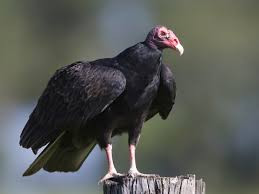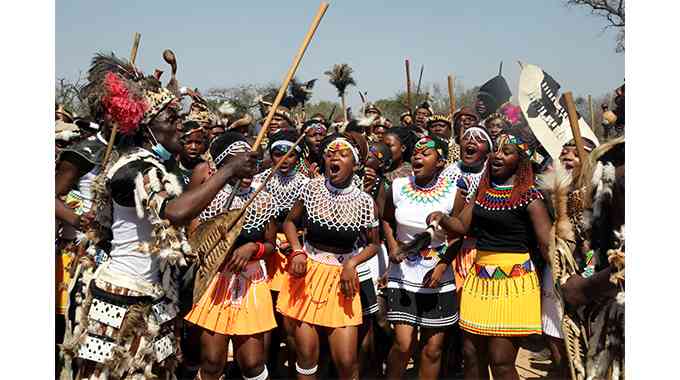
In the bustling markets of Zimbabwe, a silent crisis unfolds. Traditional healers and gamblers eagerly seek vulture parts, believing in their mystical properties.
However, this trade masks a catastrophic decline in Africa’s vulture populations, threatening both ecosystems and human health. Josephine Mundava-Maringa, a Zimbabwean ecologist and an associate researcher with Birdlife Zimbabwe, has dedicated nearly a decade to unravelling this complex issue.
Ancient beliefs, modern extinction
Vultures, often misunderstood, are caught between ancient spiritual beliefs and modern extinction. Mundava-Maringa’s research challenges the myths surrounding these birds with scientific facts. Contrary to supernatural claims, vultures’ remarkable abilities stem from evolution:
“Their eyesight, eight times sharper than humans’, allows them to spot carcasses from great heights. They fly in formations, creating an efficient aerial surveillance network. Even their bare necks serve a practical purpose, preventing bacterial infections while feeding,” she said.
This biological reality contrasts sharply with traditional beliefs that vultures possess supernatural powers to foretell the future. As Mundava-Maringa explained: “People relate the behaviour of an animal to what you can take away from it. They see a dead animal, and there is nothing in the sky. And then 20 minutes later, there is a vulture. So, now they start to think, ah, ‘maybe this bird can dream visions of where dead carcasses are found, that means they have supernatural powers’.”
Grim economics of vulture trade
The vulture trade follows a dark economic chain. Gamblers, certain religious groups, and public figures are the primary consumers, driving the demand for vulture parts. Middlemen poison or trap the birds, selling various body parts in markets across Africa.
- Mavhunga puts DeMbare into Chibuku quarterfinals
- Bulls to charge into Zimbabwe gold stocks
- Ndiraya concerned as goals dry up
- Letters: How solar power is transforming African farms
Keep Reading
As vultures become scarce, the demand shifts to other birds of prey, expanding the crisis. Mundava-Maringa’s research reveals startling details about this trade: “A whole bird can fetch US$200 in the market, while a fresh head can fetch US$150 — because a fresh head has got brains. And brains apparently are high value — they sell these for as much as US$100.”
Her surveys in traditional medicine markets in Zimbabwe’s Bulawayo, Chipinge, Harare and Gweru found that vulture parts or whole birds were predominant in all of the marketplaces. The trade has expanded to include other raptors as vultures become scarcer, creating a cascading conservation crisis.
Poisoning crisis
Poisoning, both intentional and unintentional, accounts for 61% of vulture deaths. Livestock owners, attempting to protect their animals from predators, inadvertently kill vultures that feed on poisoned carcasses. For example, one single incident in Botswana in 2019 resulted in the death of 500 vultures at an elephant carcass.
The poisoning crisis, coupled with the birds’ slow breeding process, worsens the extinction risk. Vultures are sexually mature at four years, and may not breed until they are six, and lay a single egg within a breeding season. The loss of even one breeding adult can devastate a species already struggling with low reproduction rates.
Innovative conservation strategies
Mundava-Maringa’s team employs various strategies to combat this crisis. They conduct workshops to educate traditional healers about vulture’s biology, launch bold awareness campaigns, and work with authorities to strengthen legal protection. The team also collaborates with traditional healers to find plant-based alternatives to vulture parts, though some remain resistant due to ancestral beliefs.
Maringa specialises in species conservation, conservation policy, and wildlife disease management. She has published more than 10 scholarly articles on avian ecology and biology. Maringa is affiliated with Birdlife Zimbabwe and collaborates with Shangani Holistic, where she applies her expertise to practical conservation initiatives. Her work combines scientific research with community-based approaches to address pressing ecological challenges.
We need vultures, not dead: The silent battle for survival
Another innovative approach is the establishment of vulture “restaurants” — which are safe feeding sites with clean meat. For instance, her previous research in 2018 at Shangani Ranch showed the effectiveness of such measures.
“When we started looking at nesting population in this area, the nesting pairs were about 14. A recent survey had more than 40 pairs on the farm. So, it is been increasing, mostly because the place is safe. It provides good food. So, it’s a typical, what we call vulture safe zones,” she explained.
Mundava-Maringa highlighted how Vulture Safe Zones (VSZs) are areas where concerted efforts are made to make areas free from threats to vultures by encouraging and supporting key stakeholders such as land managers or landowners and local communities to adopt vulture friendly activities.
Perhaps the most difficult challenge is changing deep seated beliefs. As Mundava-Maringa explained.
“Perception is reality. If I perceive that this bird works for this, that’s my reality. And it doesn’t matter how many times you tell me that it doesn’t work. If I perceive it to be real and that it works, I will still go for the bird,” she explained.
This is particularly true for religious groups using vulture parts.
“Church members are visiting traditional markets in search of vulture heads, so that they can pull crowds. They are using them to attract people to their churches. We actually found that it is a big trade, and we had not anticipated this at all!. It is a hidden trade, because churches are not willing to share information,” she noted.
Holistic approach to conservation
Mundava-Maringa emphasises that vulture conservation requires addressing multiple threats simultaneously, as she stated in this interview.
“It is sort of a holistic approach that we are taking towards research where if you are looking at maybe species that are in trouble … you talk to traditional healers, you count the birds in the bush, you test them for poisons, you look at the habitat and investigate the community around,” she explained.
Her work exemplifies this approach, combining ecological research with sociological understanding and community engagement. The 2018 nesting survey in Hwange National Park, for instance, not only documented nest locations but also analysed tree species preferences and nesting heights, finding vultures favoured thorny acacias likely for predator protection.
Road ahead
Despite these efforts, challenges remain. The role of certain religious groups in driving vulture demand remains a “dark box”, requiring further investigation.
The team also faces the task of quantifying the vultures’ ecosystem services, estimated at US$1,8 billion annually within the Southern African Development Community region, to sway policymakers.
Vultures consume infected carcasses before spores form and prevent the spread of diseases such as anthrax and rabies — their existence is actually preventing the next pandemic from happening! This is another key message that must be shared with the public and policymakers to protect them from extinction.
Mundava-Maringa concluded: “We are trying to get all the moving parts together so that we move forward and get to a place where we have got working laws, people that are educated, and people that value the ecosystem services provided by vultures.”
Africa’s vultures teeter on the brink of extinction, but Mundava-Maringa’s work highlights the urgent need to bridge the gap between traditional beliefs and scientific conservation. The fate of these misunderstood birds hangs in the balance, with far reaching consequences for both ecosystems and human communities across the continent. A world without vultures does not look great at all.
Vultures are vanishing — and our ecosystems are at risk! Join the fight to protect these misunderstood heroes on International Vulture Awareness Day (September 6, 2025). Learn how you can help save nature’s clean-up crew before it is too late.
Dabengwa is a freelance science communication writer. His research interrogates the interactions of human information behaviours in everyday life contexts that include education, health and technology. — ORCID iD: [https://orcid.org/0000-0003-1160-8276].
Maringa specialises in species conservation, conservation policy, and wildlife disease management. She has published more than 10 scholarly articles on avian ecology and biology. Maringa is affiliated with Birdlife Zimbabwe and collaborates with Shangani Holistic, where she applies her expertise to practical conservation initiatives. Her work combines scientific research with community-based approaches to address pressing ecological challenges.






